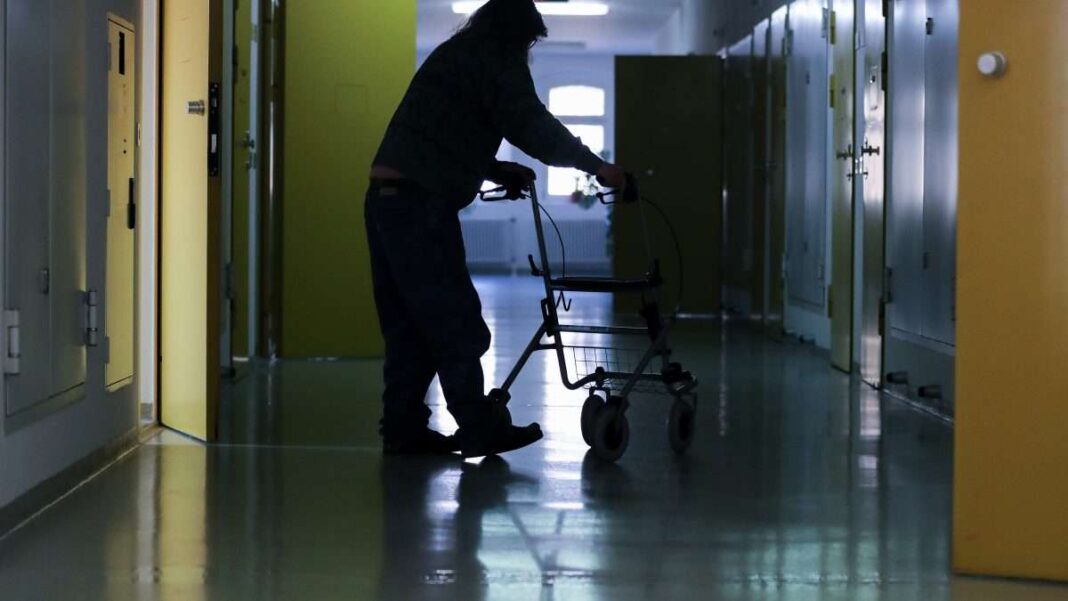Federal inmates suffering from unconstitutional medical neglect could get a new avenue for relief under changes being proposed by the U.S. Sentencing Commission.
This month the commission released a list of proposed amendments to the federal sentencing guidelines, and among them is a change that would broaden compassionate release, a policy that allows incarcerated people who are terminally ill or severely debilitated the mercy of spending their remaining days at home.
Specifically, the amendment would expand the qualifying circumstances for compassionate release to include incarcerated people “suffering from a medical condition that requires longterm or specialized medical care, without which the defendant is at risk of serious deterioration in health or death, that is not being provided in a timely or adequate manner.”
Despite the Eighth Amendment’s guarantee of basic hygiene and health care for incarcerated people, prisons and jails across the country regularly subject people to atrocious and humiliating neglect. For example, last year Reason reported how the Bureau of Prisons (BOP) allowed a man’s highly treatable colon cancer to progress until he was terminally ill, all while insisting in court that there was no evidence he had cancer and that he was receiving appropriate, timely care.
“Federal prisons have been unable or unwilling to get people the medical care they need,” says Kevin Ring, the president of FAMM, a criminal justice advocacy group. “The stories we hear on a regular basis are heartbreaking and infuriating. The commission’s proposal tells BOP and the courts to do better.”
The First Step Act of 2018 significantly expanded the availability of compassionate release by allowing judges to consider petitions. Previously, only the BOP had the authority to grant or deny petitions, and it was notorious for stonewalling them. Justice Department records obtained by FAMM show that at least 81 federal inmates died while waiting for the government to review their applications between 2014 and 2017.
But even under the First Step Act, judges could grant compassionate release only for “extraordinary and compelling” reasons, which were narrowly defined and did not include medical neglect. As a result, inmates who were suffering from well-documented neglect could only file an Eighth Amendment lawsuit. There is a high bar to proving an Eighth Amendment violation: Inmates must show “deliberate indifference” from prison officials to their condition. Prisons use this to their advantage by generating paper trails and appointments that do little to actually treat inmates but satisfy incurious judges. And the lawsuits can drag on for years.
Reason has reported, for instance, on the case of Terri Mollica, a federal inmate who filed a petition for compassionate release in 2020. According to a federal judge’s ruling on her petition, Mollica has an untreated uterine fibroid that weighs roughly 15 pounds and “causes ‘visible protrusions’ from Ms. Mollica’s abdomen and causes her pain, uterine bleeding, anemia, infection, and fevers.” She had been waiting in pain for outside treatment since a physician first diagnosed the fibroid tumor in 2016.
Despite finding that Mollica’s condition was “undoubtedly a very painful burden,” U.S. District Judge Karon Bowdre ruled that Mollica had not proven she was at risk of death and that she wasn’t debilitated “to the extent that she cannot care for herself.” That may seem callous, but Bowdre was following the federal guidance on compassionate release. The judge instead recommended that Mollica file an Eighth Amendment lawsuit.
Mollica took her advice and filed a civil rights lawsuit in 2020 against several BOP officials. That lawsuit is still ongoing. Meanwhile, according to Mollica’s lawsuit, the tumor, which once could have been removed through laparoscopic surgery, will now require a hysterectomy.
The expanded definition of extraordinary circumstances would give incarcerated people like Mollica another avenue for relief, and would make it harder for judges to look away from the constitutional disasters occurring under their noses.





